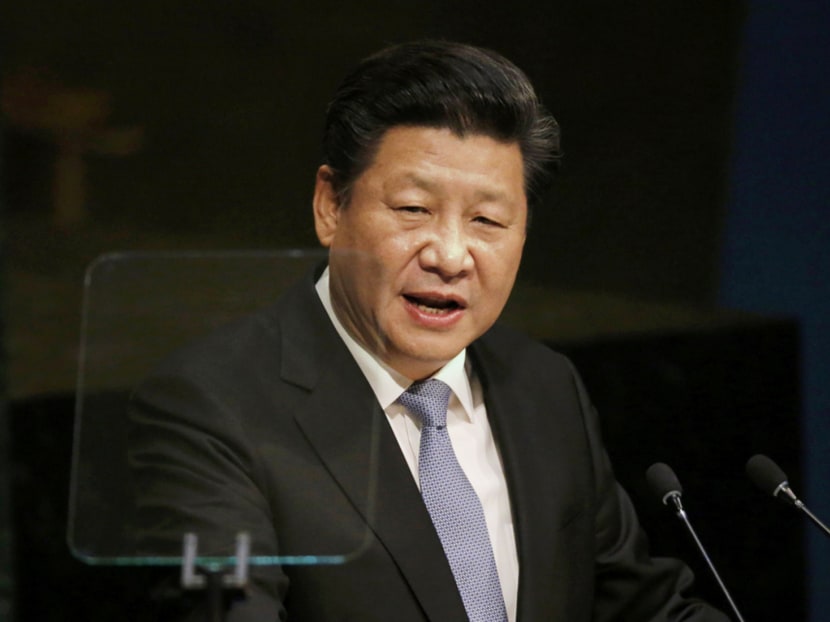Obama and Xi remain at loggerheads on S China Sea
NEW YORK — United States President Barack Obama and Chinese President Xi Jinping have exchanged verbal jabs over territorial disputes in the South China Sea involving Beijing and several other countries in the region in their speeches delivered at the annual United Nations General Assembly this week.

Chinese President Xi Jinping told attendees at the UN General Assembly that China’s maritime activities in the South China Sea are ‘internal affairs not subject to interference’. Photo: REUTERS
NEW YORK — United States President Barack Obama and Chinese President Xi Jinping have exchanged verbal jabs over territorial disputes in the South China Sea involving Beijing and several other countries in the region in their speeches delivered at the annual United Nations General Assembly this week.
Their UN appearances on Monday came just three days after their summit at the White House on Friday, which left the impression that the two leaders have some way to go in building mutual trust. Major gaps remain not only on the maritime row, but also other issues such as cyberspace security and human rights protection.
Mr Obama noted on Monday that the United States does not claim territory in the South China Sea, nor does it adjudicate claims.
“But like every nation gathered here, we have an interest in upholding the basic principles of freedom of navigation and the free flow of commerce and in resolving disputes through international law, not the law of force,” he told the UN.
“So we will defend these principles, while encouraging China and other claimants to resolve their differences peacefully,” Mr Obama said.
The Obama administration has been speaking out against China over the latter’s massive land reclamation in the disputed Spratly Islands and the construction of various facilities that Washington says include at least three airstrips, suspecting Beijing may use them for military purposes. China has denied militarising any of the territory.
China claims most of the South China Sea, through which US$5 trillion (S$7 trillion) in ship-borne trade passes every year. The Philippines, Vietnam, Malaysia, Taiwan and Brunei also have overlapping claims.
Last year, Chinese and Vietnamese ships were engaged in a series of collisions in another disputed area of the South China Sea that both countries claim, after China began oil exploration activities in the region.
Mr Xi, in an apparent bid to defend the maritime activities, said in a speech, “The sovereignty and territorial integrity of all countries are inviolable, and their internal affairs are not subject to interference.
“The big, strong and rich should not bully the small, weak and poor,” Mr Xi said.
Washington has criticised Beijing for pushing ahead with the reclamation and other activities while ignoring objections by other claimants such as the Philippines and Vietnam.
At a joint press conference with Mr Obama in Washington on Friday, Mr Xi said, “Islands in the South China Sea since ancient times are China’s territory. We have the right to uphold our own territorial sovereignty.”
Admiral Harry Harris, commander of the US Pacific Command, told a recent congressional session that China has been building three 3,000m-long runways as well as port facilities for a battleship in the South China Sea.
The Center for Strategic International Studies think tank in Washington also alleged that China is constructing at least three airstrips at Fiery Cross, Subi and Mischief reefs in the Spratlys. Kyodo News





